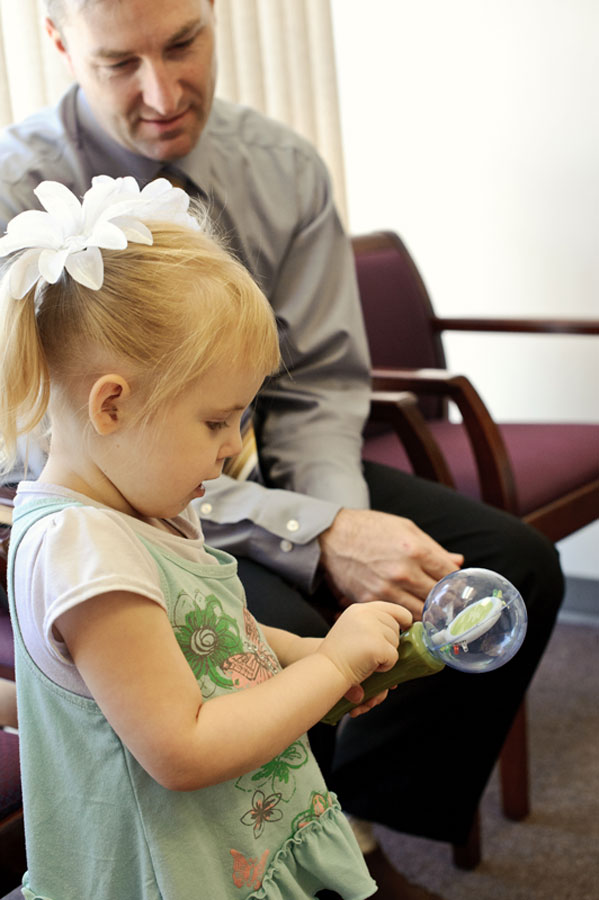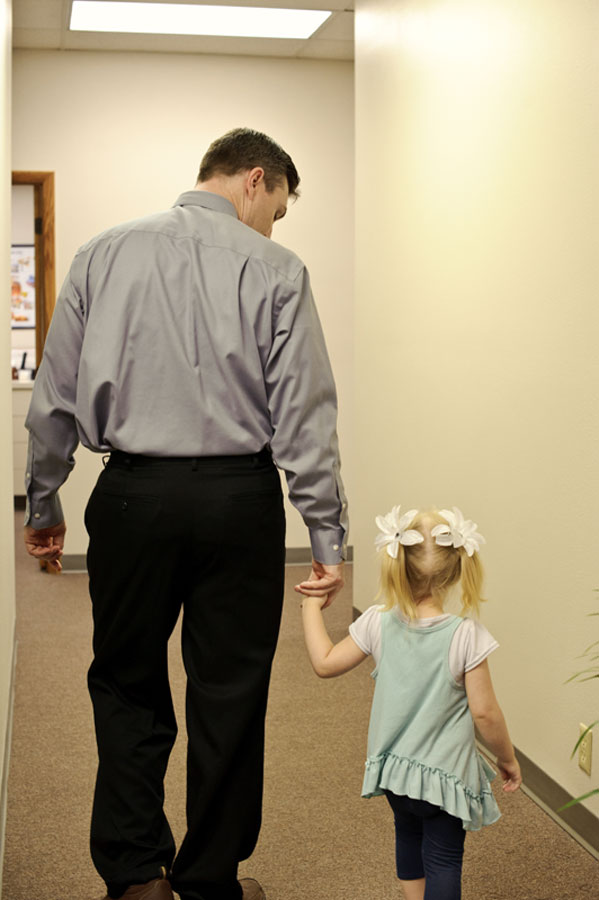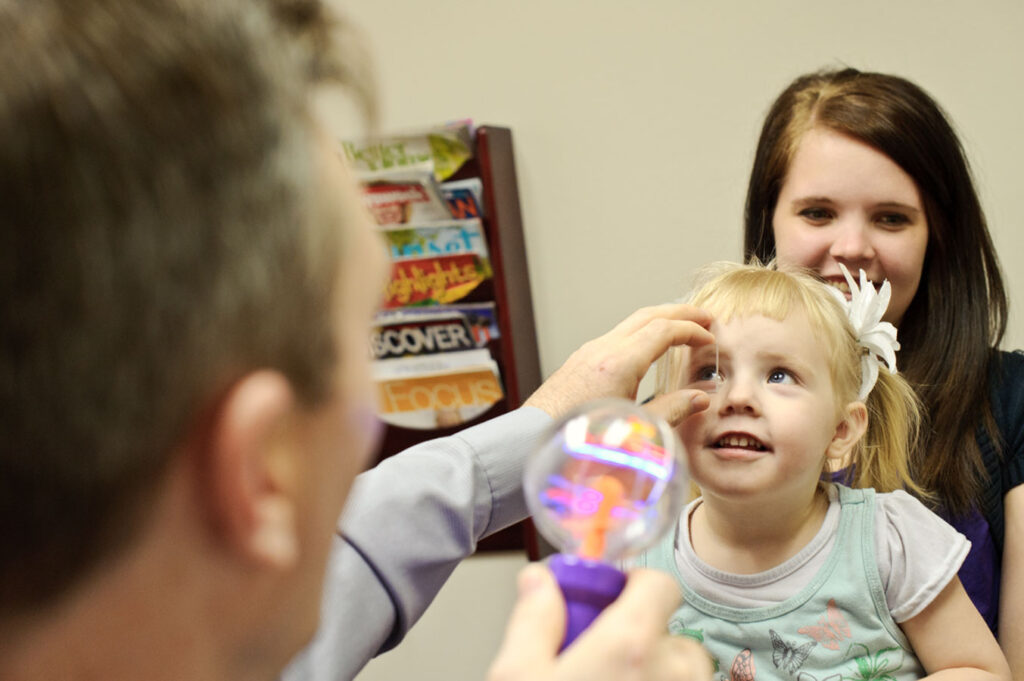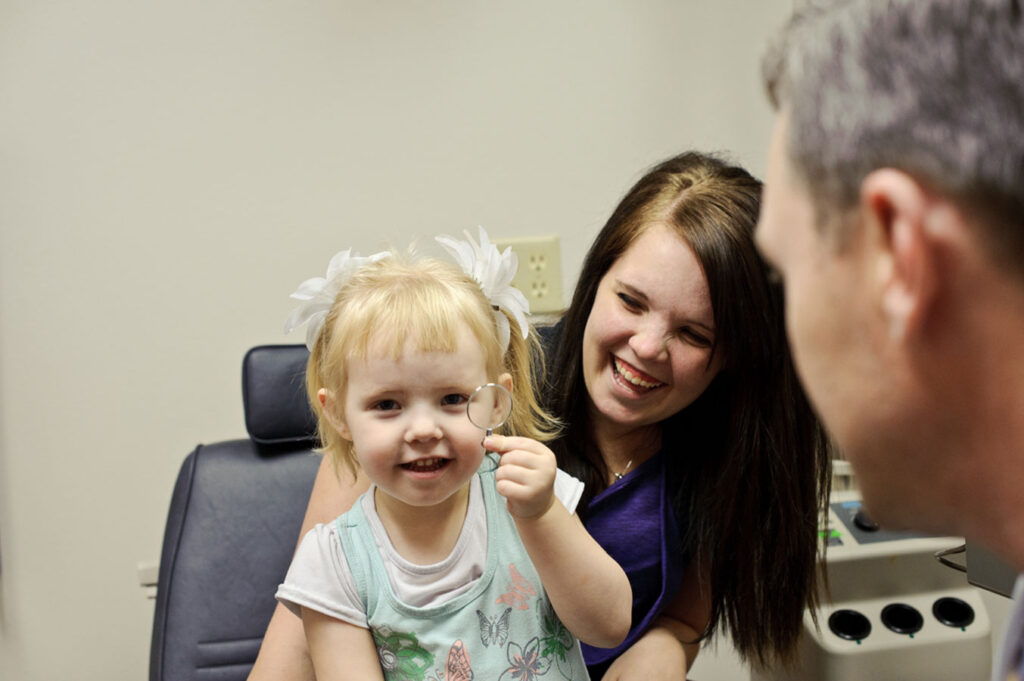
Preventive measures for eye pain when outdoors are simple: use a good hat, a good pair of UV-blocking sunglasses, and lubricating drops. Don’t forget the sunblock!
Dr. Affleck offers pediatric eye care. This means he treats patients from infants to adults. Children are comfortable around Dr. Affleck. He laughs and plays with them until they feel calm in his present. He examines them on their parent’s lap so they feel safe. Dr. Affleck can exam children even before they can talk and tell them what they see. This is important because children don’t always understand or can explain their vision problems.
If your child is uncomfortable at hospitals or medical clinics, please let us know. We will schedule a FREE special “visit the office.” Your child will have the opportunity to:
Visits at the office can go smoother with the following tips:
Talk positive about seeing Dr. Affleck and how important it is that your child does what Dr. Affleck asks. Explain what will happen so your child is prepared.
First, explain how to sit still and opening their eyes. Next, show them how Dr. Affleck will come close their eye, but how it will not hurt. Lastly, role play with your child. Take turns being the patient and then Dr. Affleck. Have fun and laugh.
Bring special toys that your child rarely gets to play. These toys are allowed when calmly waiting for the doctor. This makes your time more relaxed too!
Please avoid scheduling your visit during normal nap or meal times. If they are feeling ill, reschedule.




“I have been seeing these cute twin boys for years. My goodness, they are in their teens now. One time after Christmas when they were about 7 years old, I was telling them about the Lego toys my son their age had gotten from Santa. To my surprise they both asked if they could come to my house to play with my son and his new toys.”

Amblyopia is when during childhood one or both eyes do not develop correctly. This childhood condition must be treated early.
Your eyes must work together if you want depth perception. Your depth perception is defined as understanding how far apart objects are from each other. Someone with poor depth perception lacks the ability to hit a ball being thrown at them, or misjudges how far a car is when driving.
When a child is first born, their eyes may cross or wander for the first few months. However, by 4-6 month old if there is misalignment even occasionally your child must be examined by Dr. Affleck. The concern is an eye condition called strabismus.
The brain as well as your eye are what help you see. Therefore your visual system is made up with both the eyes and the brain. Your eyes send signals/images you are focusing on to your brain. It is the brain that uses the signals to form a picture.
Strabismus also known as crossed eyes is when the eyes do not work together. Someone with strabismus may only have one eye looking at you when you are talking together. The other eye is looking in another direction.